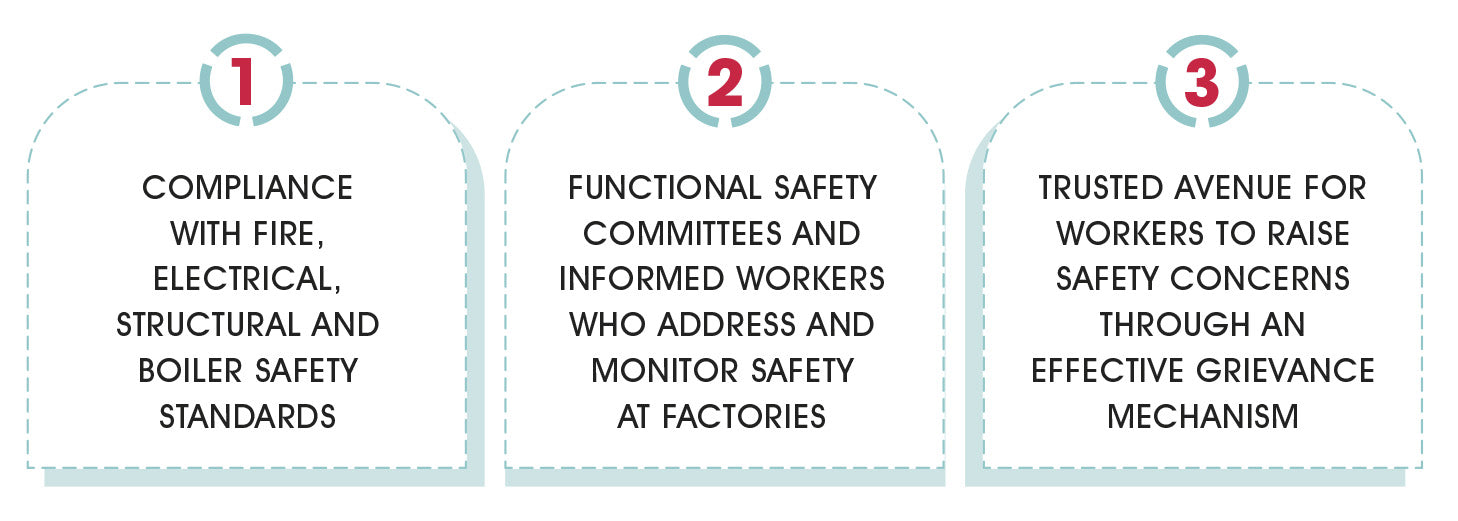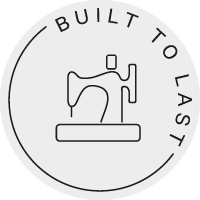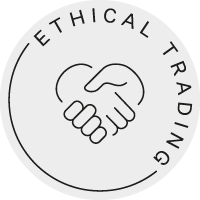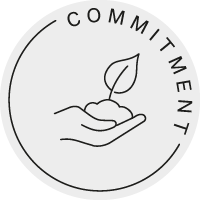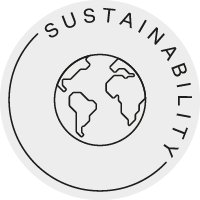Ethical Trading at Montane
FAIRWEAR FOUNDATION
As part of our factory selection process and ongoing partnerships, we require that our suppliers agree to and meet our business standards. Montane has always included our Social and Ethical Policy in all factory contracts, to help to ensure that our values, policies and standards are understood and adhered to. The policy was built upon the same International Labour Organisation (ILO) foundations that underpin the Fair Wear Foundations (FWF) work. Montane’s FWF membership and regular visits to our factories support long term and effective implementation of these standards.
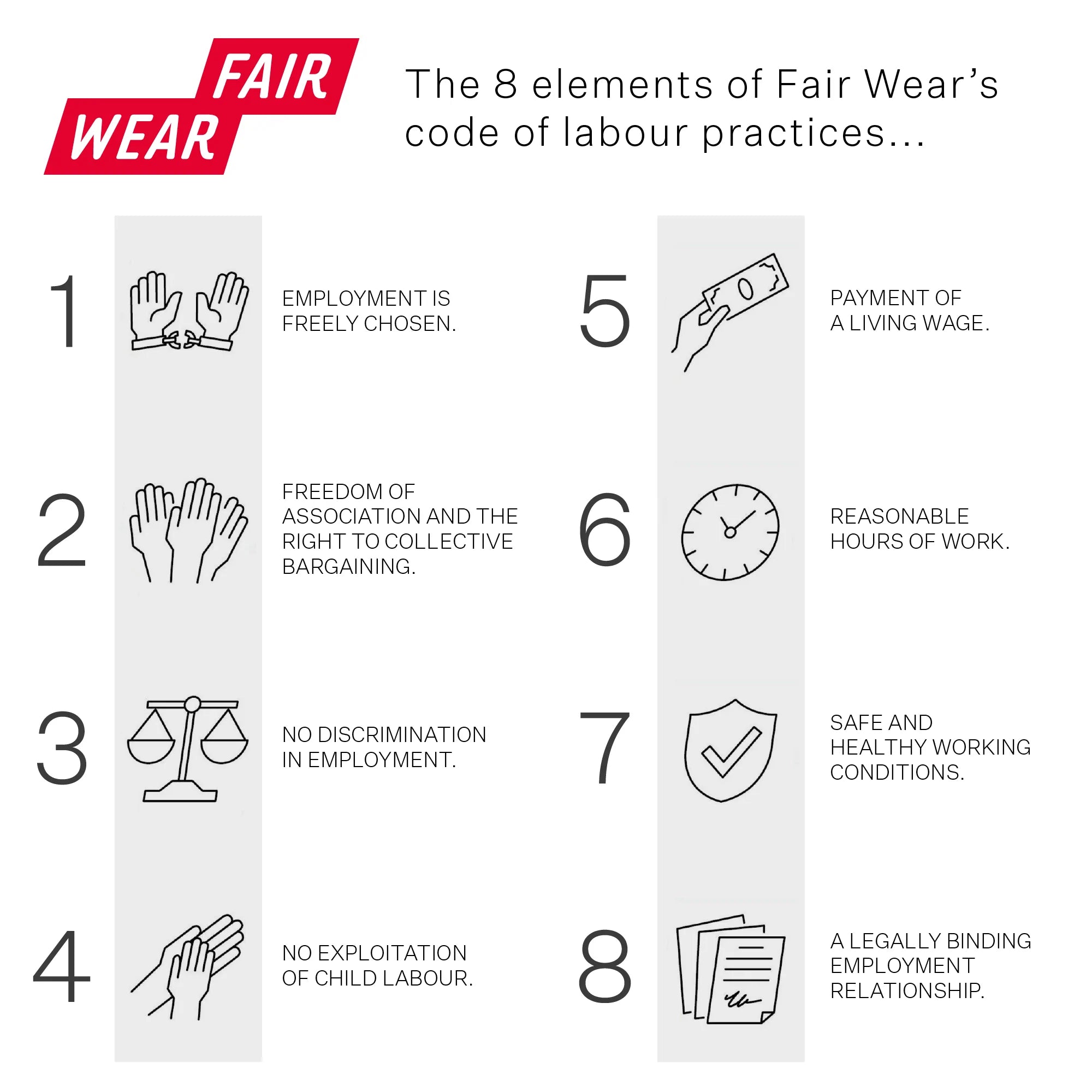
The Fair Wear Foundation Eight Code of Labour Practises (CoLP)
The labour standards shown on the left are the fundamental values that we strive to communicate and support throughout all garment and product manufacturers Montane works with. To raise and maintain awareness with all of the workers, these standards are displayed in the local language of all factories we work with. Workers also receive training about the CoLP, which builds understanding and supports open dialogue between factory management and the workers.
An anonymous complaints mechanism operated by Fair Wear and their member brands further supports transparency of working conditions, and gives workers a voice. Working together with Fair Wear and any other member brands present in the factory, we work hard to resolve any concerns raised quickly. Our factories also undergo regular audits, to ensure that our high standards are being upheld.
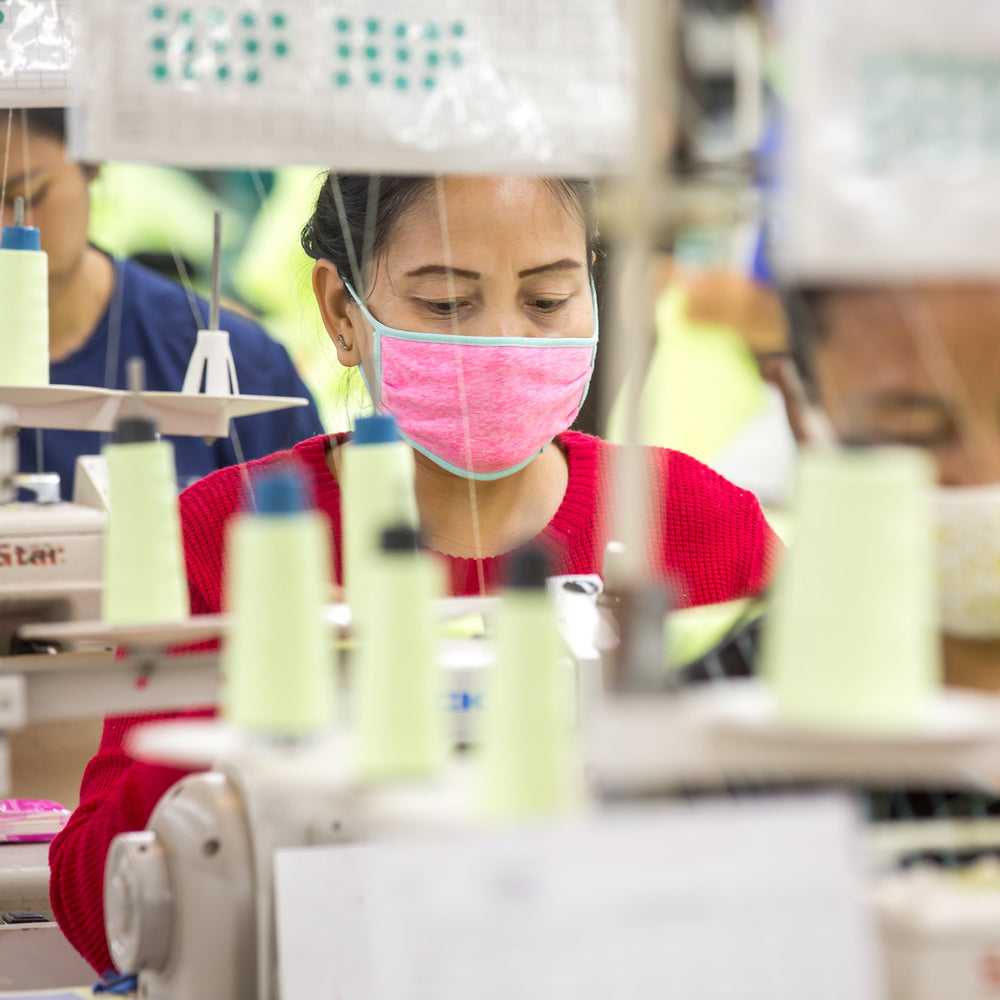
Why Fair Wear Foundation?
Upon joining the FWF, Montane joined a community of brands working hard to improve working conditions and transparency in the garment industry. Working together in this way gives us a collective voice, which ultimately increases the influence we have and enables us to really make a positive difference.
Our FWF membership also provides us with continuous training and support that builds our own understanding of the challenges faced by different production countries, legislative changes and how best we can work together with factories to create meaningful change.
This membership and the work it requires, strengthens our confidence in the factories we work with, in turn giving you confidence that by purchasing from Montane you are supporting improved conditions and working rights for the people who make your products.
To facilitate easy and strong working relationships with other FW brands, Montane discloses 100% of the factories who produce for Montane.
Why FWF?
Annual Social Report
Montane Social Report 2025
Montane Social Report 2024
Montane Social Report 2023
Montane Social Report 2022
Montane Social Report 2021
Annual Brand Performance Check
Following Montanes latest Brand Performance Check, we have been awarded Fair Wears prestigious ‘Leader’ status for the first time. This category is for member companies who are doing exceptionally well, and are operating at an advanced level. This new status reflects the efforts Montane has put into its membership, the improvements that have been made since 2019, and the importance of membership to the brand. You can read all about the work undertaken to achieve this in our BPC report.
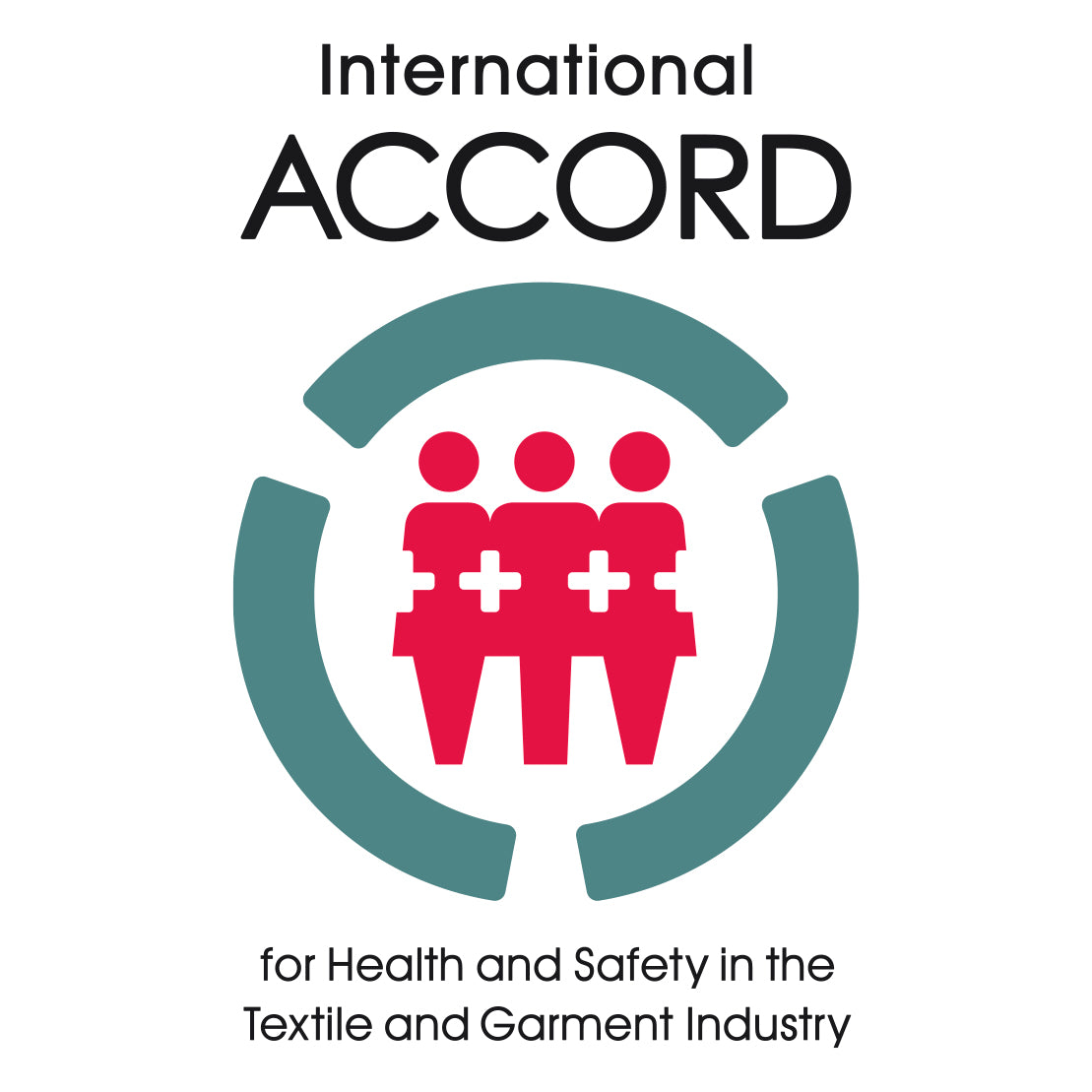
Montane is a member of the International Accord
We are aware that the conditions and standards for garment factories in Bangladesh can be particularly variable, and because of this, it is especially important that we take steps to monitor, manage, and mitigate risks in the factory’s we work with.
In November 2023, the previously known International Accord for Health & Safety in the Textile and Garment Industry was updated. This became an overarching International Accord, encompassing individual country addendums including Bangladesh. Montane was an initial signatory of this revised Accord and the Bangladesh Safety Program Agreement, which is a legally binding framework striving to promote a safe and healthy textile and garment industry.
This is managed through audits that assess factory standards for structural, fire, and electrical safety. Where recommendations or requirements are made, Montane will work together with our factories to ensure remediation is swift, sufficient, and that safe and healthy working conditions are maintained.
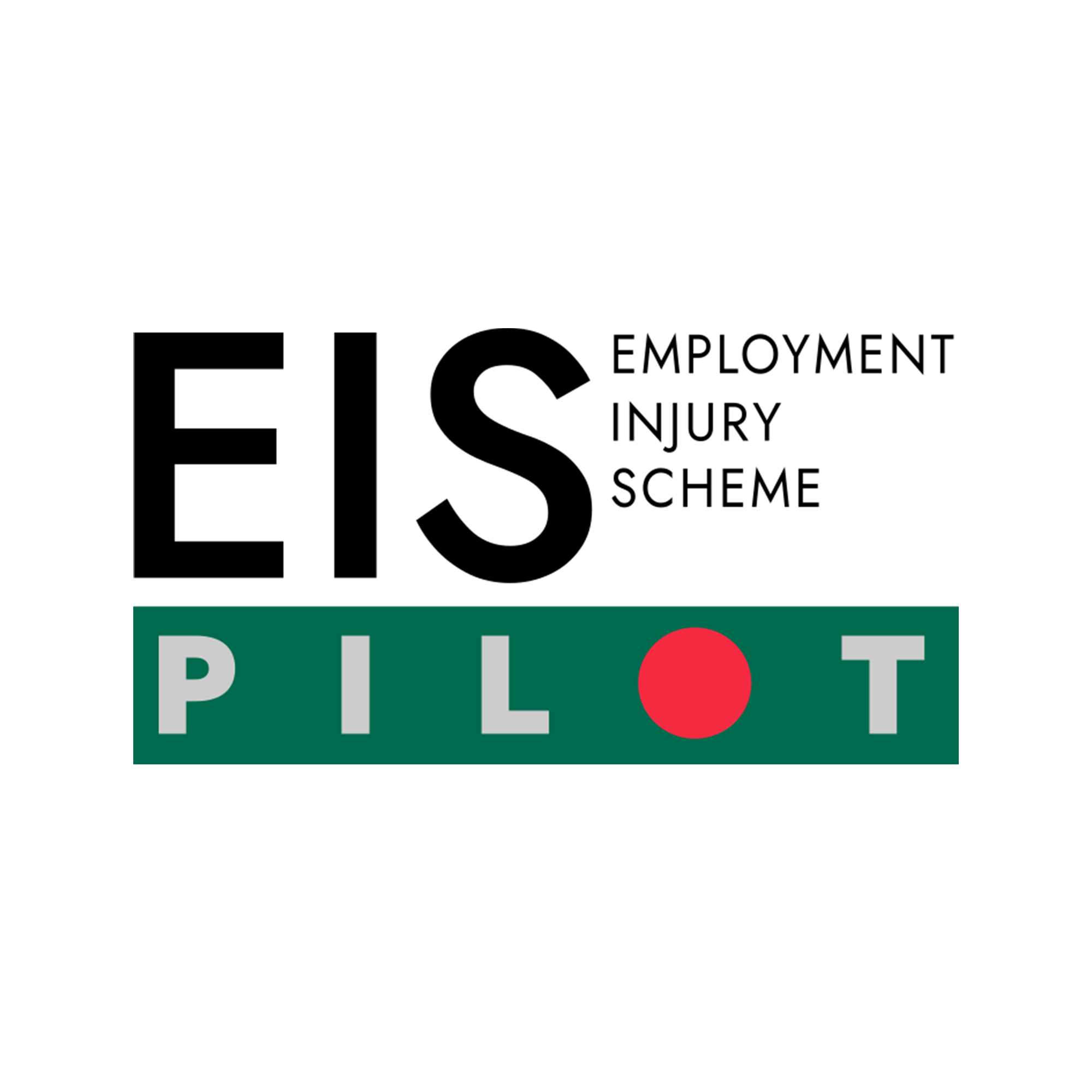
Employment Insurance Scheme
To further protect garment workers in Bangladesh, in 2023 Montane began supporting a pilot Employment Insurance Scheme managed by the International Labour Organisation (ILO) and Gesellschaft für Internationale Zusammenarbeit (GIZ). This scheme protects 4 million garment workers by helping to ensure that international standards are met regarding medical care and compensation for any loss of earnings in the event of a workplace accident.
Montane are proud to be an early supporter of this initiative, which ultimately aims to introduce a permanent employment injury protection scheme into Bangladeshi law.
Military coup in Myanmar – our response:
Previously, Montane urged and hoped for cessation of violence and swift reinstallation of democracy in Myanmar, however there are continued reports of human rights violations, both in the garment sector where Montane operates and in the country at large.
As Montane staff cannot safely or responsibly visit the factory or in good conscience arrange for external auditors to visit, we feel that it has become impossible to conduct heightened due diligence there. We no longer have confidence that the high standards around workers’ rights, health and wellbeing expected in our supply chain are being maintained.
Through discussions with our supplier, with Fair Wear, and through monitoring the advice of other aligned bodies, we have taken the decision to responsibly disengage, whilst fulfilling our existing orders and using up Montanes’ material inventory. Fair Wear continues to support Montane as we work with the factory and its workers on the responsible disengagement process.
Please find Fair Wears’ Business in Myanmar Policy here.
Please find our full statement on disengagement from Myanmar below:








